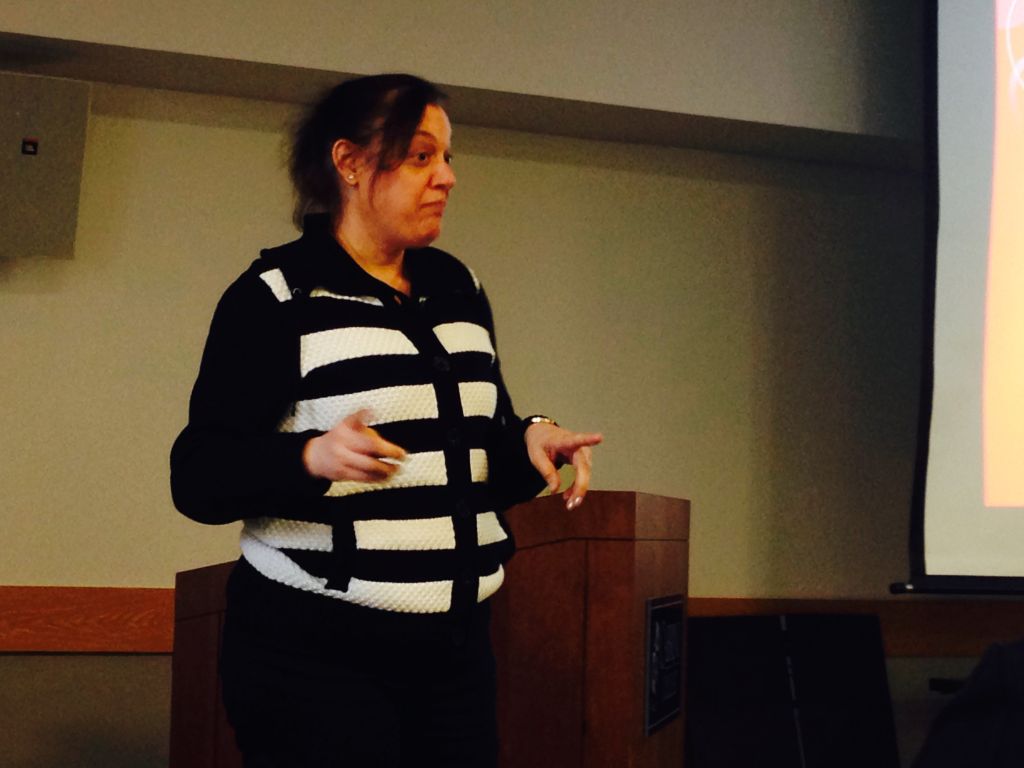
In the 21st century, some Palestinian women in Israel are being murdered to save the honor of their families, a Cabrini professor revealed in a research presentation on campus.
Dr. Alia S. Sheety, a Palestinian Israeli herself, presented her research on honor killings at the Faculty Forum on Wednesday, Feb. 11. Sheety addressed her fellow faculty members and shared her research in a presentation entitled, “Voices for Change: The Role of Arts, Language & Social Media in Promoting Public Awareness on the Topic of Honor Killing: The Case of Palestinian Residents of Israel.”
Sheety is the coordinator of the master of education program in curriculum, instruction, and assessment. In addition, she is an instructor in the department of educational policy and leadership.
While living in a society where some believe that men have more value than women, Sheety grew up knowing how important education was to her and how important it was to not depend on anyone.
She has conducted hours upon hours of research on the topic of Honor Killings among Palestinians in Israel, the country which she is a native to.
Honor killings are when a member of the family kills another member for bringing shame upon their family. Honor Killings take place when a woman refuses an arranged marriage, when a woman is raped, or when she is accused of taking part in illicit sexual activity.
“Being raised in a family of three girls in a patriarchal society that assumes boys are superior to girls, it’s always been important for me to provide evidence that rejects the assumption and to look for means to empower women and change the way they perceive themselves and the way society perceive them,” Sheety said.
In her presentation, Sheety touched on some research conducted by Dr. Suhad Daher Nashif, which stated that 47 percent of Palestinian women in Israel supported the killing of women to save the honor of their families.
“I felt very sad to see the high percentage of young adults in the 21st century who still think that honor relates to women and that it is achieved by threatening or killing,” Sheety said.
Sheety would like to further her research in the future to find the role that school curriculum and communication plays in regard to this topic. She would like to find out teachers’ perceptions of honor killings. Also, she hopes to discover if social media has any effect on honor killings and if it is becoming the new agent for change.
“I deeply believe that it is about empowering women and getting them out of the idea that they are victims,” Sheety said.


